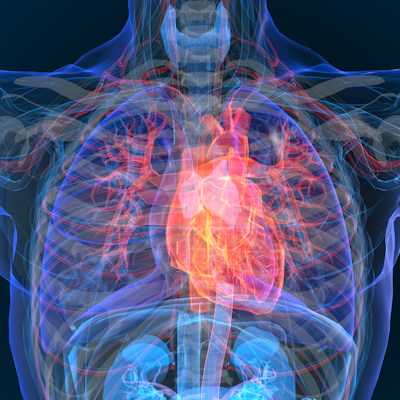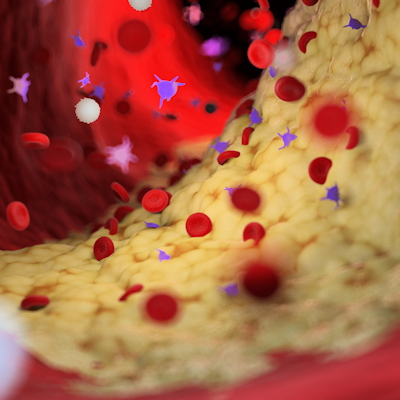June 13, 2023 -- Increased blood levels of lipoprotein(a), a bad cholesterol variant, are a risk factor for recurrent coronary heart disease (CHD) in people over 60.
A 16-year study, published Tuesday in Current Medical Research & Opinion, indicates that future therapeutics to reduce elevated lipoprotein(a) might help prevent recurrent CHD.
CHD is the most common type of heart disease and the most common cause of heart attacks. It occurs when the arteries that supply the heart with oxygen-rich blood become narrowed by a build-up of fatty material inside their walls. CHD was the single biggest killer of people worldwide in 2019.
High cholesterol levels in the blood can increase the risk of CHD. Cholesterol travels through the blood on lipoproteins made of protein and fat. Lipoproteins include low-density lipoprotein (LDL), high-density lipoprotein (HDL), and lipoprotein(a). LDL cholesterol, or "bad cholesterol," collects within blood vessel walls, increasing the chances of cardiovascular disease. Lifestyle changes and/or medications, like statins, may help improve a person's cholesterol levels.
While previous studies have indicated that high lipoprotein(a) levels are an important CHD risk factor, most investigated whether elevated lipoprotein(a) levels increased the risk of a first CHD event. As it is well-established that people who have experienced CHD are at high risk of another event, the researchers sought to learn whether elevated lipoprotein(a) is predictive of a second or recurrent CHD event.
Their longitudinal observational study, called the Dubbo study, followed 607 Australians over age 60, all with prevalent CHD. There were 399 CHD incidents over the study's 16 years. The median lipoprotein(a) level in people who had a recurrent CHD event was 130 mg/L, compared to 105 mg/L in those who did not. Lipoprotein(a) levels over 300 mg/L were found in 26% of people who had a recurrent CHD event, and 19% of those who did not. Lipoprotein(a) levels over 500 mg/L were found in 18% of people who had a recurrent CHD event, and 8% of those who did not.
In senior citizens with prior CHD, elevated lipoprotein(a) in the top 20% (>355 mg/L) predicted a 53% excess risk of a recurrent CHD event, compared with those in the lowest 20% (<50 mg/L). Upper reference lipoprotein(a) levels of 500 mg/L or 300 mg/L both appear appropriate for identifying those who may benefit from intensive risk reduction interventions. One key study limitation is that baseline data were collected in 1988-1989. Nonetheless, the researchers concluded that elevated lipoprotein(a) is an important predictor of recurrent CHD in older people.
"While current medications, such as statins, are often prescribed to lower 'bad cholesterol' in patients at higher risk of cardiovascular disease, these do not have any major or proven impact on elevated lipoprotein(a)," lead author Leon Simons, associate professor at the University of New South Wales, explained in a statement. "But there is hope for the future, as some novel therapeutics designed to lower lipoprotein(a) levels are currently in the advanced stages of clinical development."
Copyright © 2023 scienceboard.net













